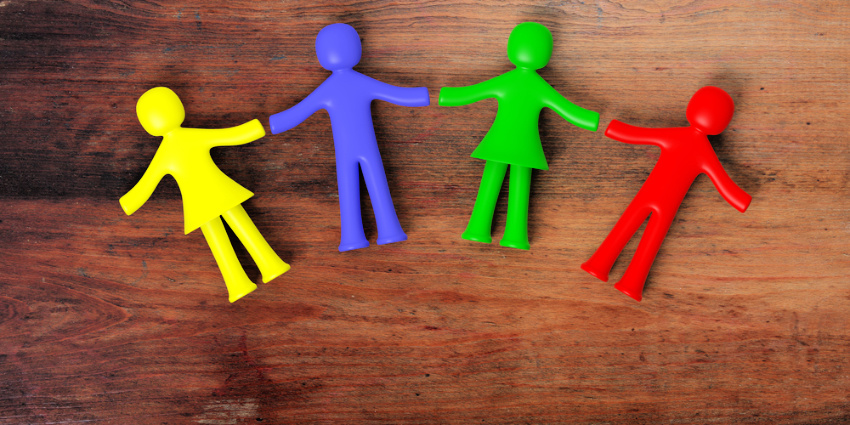There’s a misconception that individuals with Autistic Spectrum Disorder (ASD) don’t like to make friends. The truth is that most individuals with ASD struggle socially, emotionally, and have poor self-esteem, which can make it hard to sustain meaningful friendships. But none of that lessens the fact that they’re intelligent, capable, and honest people. As we continue into National Awareness Month, consider these ways to appreciate and maintain a friendship with someone with ASD:
Appreciate their uniqueness. Most individuals with ASD are unique and creative in the sense that many have strong long-term memory skills, artistic capabilities, appreciation to detail, logical thinking, and intensive focus. There’s no right or wrong way to be, except being your true self. Appreciate your friend’s uniqueness and support their ability to think differently from you.
Don’t take things personal. Having a friend on the spectrum can be very rewarding, since most individuals with ASD are very honest. They tell it how it is. Here’s an example. The other day I found an old picture of when I celebrated my 21st birthday. In great excitement and nostalgia, I showed it to my eight year old daughter. “Sam, look at mommy,” I said to her. “Hmm, you look different, like you ate a lot of vegetables,” she replied. “I was looking for a compliment, but thank you for your honesty,” I continued. “You’re welcome,” she closed with.
Telling the truth has its benefits, however, the ability to always “tell it how it is” can be seen as insensitive and not normal. According to Pediatrics.org, the inability to lie is closely tied to ‘theory of mind.’ Most autistic individuals have difficulty understanding that other people have their own thoughts, feelings, plans and point of views. They also assume that others know their own thoughts, feelings, plans, etc. Not taking things personal is supportive in a friendship with someone with ASD, since most likely they don’t understand emotional concepts fully.
Hold their heads up high. There are volumes of books written on self-esteem, and everyone struggles with this subject at certain points in their lives. However, many individuals with ASD experience symptoms like the inability to verbally communicate (this means little or no language), overly sensitive to loud noises (which can cause inappropriately screaming), receptiveness and non-functional communication, unusual body flapping (when excited or frustrated), obsessive talk on a certain topic, etc. These actions are often causes for bullying, name calling, and poor self-image. When being in relationship with a friend on the spectrum, don’t make them wrong for things they can’t control. Always hold them high and capable of having a great friendship.
Always remember people on spectrum feel emotion but might not know how to perceive emotion. In addition, most people with ASD are eager for friendship, but might not know how interact in social situations. Through therapies like Applied Behavioral Analysis and Social Skills, individuals can learn to maintain meaningful friendships. They just need a friend to be patient, understanding, and compassionate.
Karen Cervantes Jimenez
Latest posts by Karen Cervantes Jimenez (see all)
- Creando una Asociación de Padres y Maestros Durante Una Pandemia - October 13, 2020
- Creating Parent Teacher Partnership in a Pandemic - September 3, 2020
- Cómo Prepararse Mentalmente para el Regreso a Clases Durante una Pandemia - August 21, 2020
- How to Mentally Prepare for Back to School During a Pandemic - August 19, 2020
- Sprinkle A Little Compassion This Holiday Season - December 20, 2019

